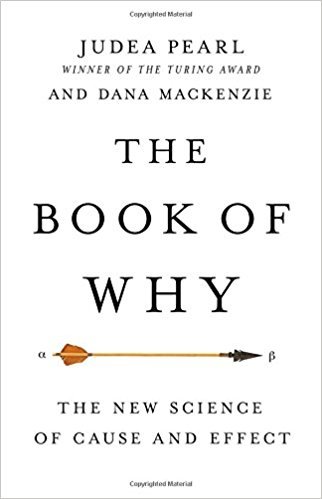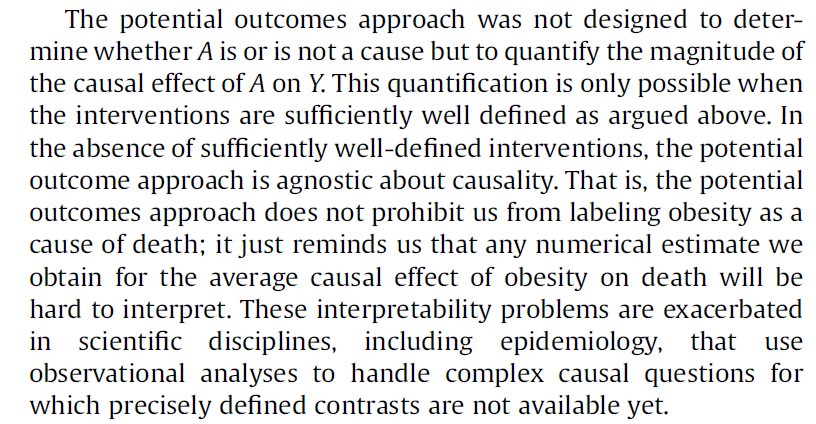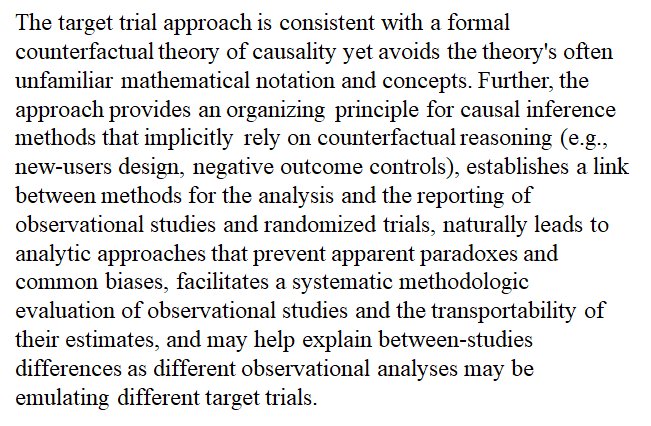Judea Pearl has a new book (with Dana Mackenzie).
amazon.com/Book-Why-Scien…
To me, Judea is an intellectual hero. My life changed after hearing him at Harvard over 20 years ago. Like many of us in #causalinference, I owe so much to him.
And yet I disagree with him on a key issue.
amazon.com/Book-Why-Scien…
To me, Judea is an intellectual hero. My life changed after hearing him at Harvard over 20 years ago. Like many of us in #causalinference, I owe so much to him.
And yet I disagree with him on a key issue.

Pearl believes that any causal effect we can name must also exist.
To him, the meaning of “the causal effect of A on death” is self-evident. He says we can quantify, say, the causal effect of race or the causal effect of obesity.
I don't think we can.
To him, the meaning of “the causal effect of A on death” is self-evident. He says we can quantify, say, the causal effect of race or the causal effect of obesity.
I don't think we can.
https://twitter.com/_MiguelHernan/status/905105718654763008
We cannot estimate "the causal effect of obesity" because we don't know what that means.
For the causal effect of A to be well defined, we need a common understanding of the interventions that we would use to change A. Otherwise, the effect is undefined.
ncbi.nlm.nih.gov/pmc/articles/P…
For the causal effect of A to be well defined, we need a common understanding of the interventions that we would use to change A. Otherwise, the effect is undefined.
ncbi.nlm.nih.gov/pmc/articles/P…

To define a causal effect, describe the hypothetical randomized experiment that you'd conduct to quantify the effect. If you can't describe the experiment (#TargetTrial), chances are you don't know what causal effect you are after.
My view, not Pearl's.
academic.oup.com/aje/article/18…
My view, not Pearl's.
academic.oup.com/aje/article/18…

If by now you are thinking that this is just another academic debate on the sex of the angels, think again: you beliefs about this issue determine your beliefs about the limits of science and about how to conduct data analyses.
Also, get Pearl's book.
Also, get Pearl's book.
https://twitter.com/_MiguelHernan/status/938052614092095488
Judea Pearl is not on Twitter so I emailed him this thread and offered to tweet his reply. He wrote back and asked me to post this: 

• • •
Missing some Tweet in this thread? You can try to
force a refresh




